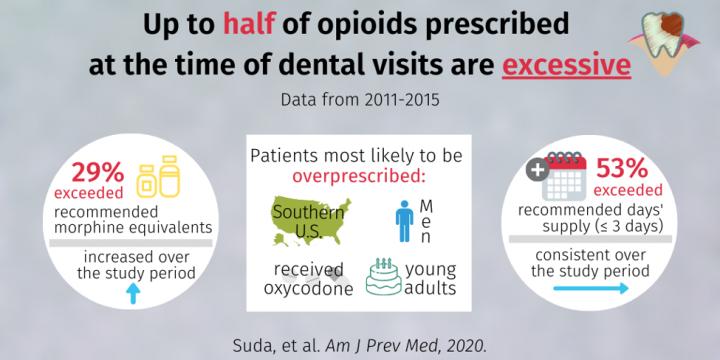Georgia hospitals penalized, a remarkable way to cut opioids, hidden coronavirus, and more
06 Feb 2020
Posted by Andrew Kantor
Ragnarök Watch: “Now You See It…” edition
Could people be carrying the Wuhan virus be asymptomatic? Chinese doctors say yes. A letter in the New England Journal of Medicine agrees. But German officials say “Nein,” claiming that the one patient without symptoms did in fact have symptoms — just mild ones, and she was taking medication.
To make matters worse, the initial symptoms are pretty vague: headache and back pain. Communication directors in America are known to suffer from those fairly regularly.
If the first symptom is common and vague […], “then the public health challenge of figuring out who’s infectious is about as great as if it was truly asymptomatic.”
Georgia hospitals on the penalty list
The latest list of hospitals hit with Medicare penalties is out, and it includes 26 in Georgia. That means those facilities are among the one-quarter of general acute-care hospitals with the highest rates of patient safety issues.
Want to see the list? Click here and enter “Georgia” in the search box.
(High-five to Crisp Regional Hospital in Cordele and Southern Regional Medical Center in Riverdale. Both had been penalized every year since 2015, but are not on the list for 2020. Nice job!)
It kinda makes you want to facepalm
How can you reduce opioid prescriptions? Apparently changing the default setting on prescription software can do it. On average, “The researchers found that for each tablet increase in default quantity, there was an increase of 0.19 tablets prescribed.”
J&J hits #1
For all it’s stock-market troubles over the past year, Johnson & Johnson still pushed its way to the top of the ‘most valuable pharma companies’ list, beating out last year’s winner, Roche.
“By having a strong brand, J&J is more resilient. You do see scandals with big brands, but it takes quite a few before things really start to go off the boil. I think J&J is still a very well-loved and respected and trusted brand despite some of these issues.”
Overprescribing in the news
Antibiotics. Researchers looking at 10 years’ worth of Medicaid claims found that …
- “More than one quarter of outpatient prescriptions for antibiotics […] may be written without a clinic visit”
- “17 percent of antibiotic prescriptions were given without an infection-related diagnosis”
- “[O]ne in five antibiotics are prescribed without a clear rationale”
Dentists. A new, large study found that dentists are overprescribing painkillers, especially to men, young people … and in the South. They’re talking doses that are too high and durations that are too long.
And it’s getting worse: “Unlike national trends, opioid overprescribing by dentists is increasing,” wrote the lead investigator (who happens to be a pharmacist).
Eat your veggies
And fruits. A new study of older people (average age: 81) found that eating flavonols, which are found in most fruits and veg, seems to have a strong correlation with not getting Alzheimer’s.
After controlling for everything you can imagine…
[T]he scientists found that, compared with those in the lowest one-fifth for flavonol intake, those in the highest one-fifth had a 48 percent reduced risk for Alzheimer’s disease.
A staggering and remarkable find in scientific papers
Apparently male scientists are more likely to boost their papers’ impact by using “Sensationalistic terms in titles or abstracts.”
[P]apers with first and last authors who were both women were about 12% less likely than male-authored papers to include sensationalistic terms such as ‘unprecedented’, ‘novel’, ‘excellent’ or ‘remarkable’.
Let’s get technical: What’s with tramadol?
If you were wondering why tramadol doesn’t cause overdoses like other opioids, Syntrix Pharmaceuticals has the answer: While tramadol allows G proteins to couple with the same receptor as other opioids (relieving pain), it doesn’t cause interfere with βarrestin2, so the body is able to avoid the typical respiratory issues associated with opioid overdose.
Or, to put it more science-y:
[I]ts active metabolite, desmetramadol, is as effective as morphine, oxycodone and fentanyl in eliciting G protein coupling at the human µ opioid receptor (MOR), but surprisingly, supratherapeutic concentrations spare human MOR-mediated βarrestin2 recruitment thought to mediate lethal opioid-induced respiratory depression.



